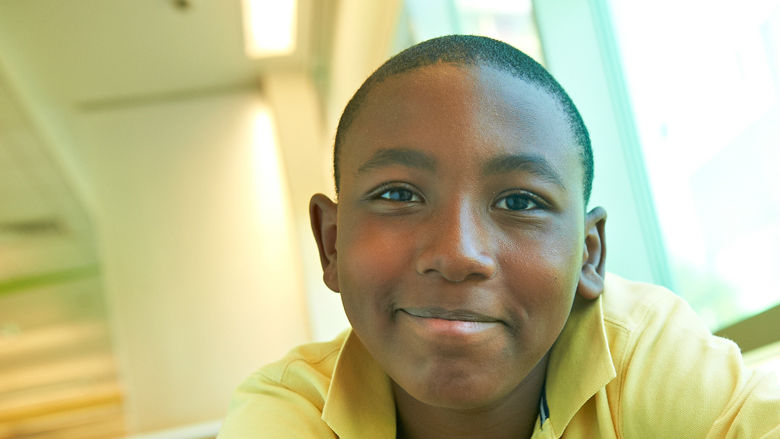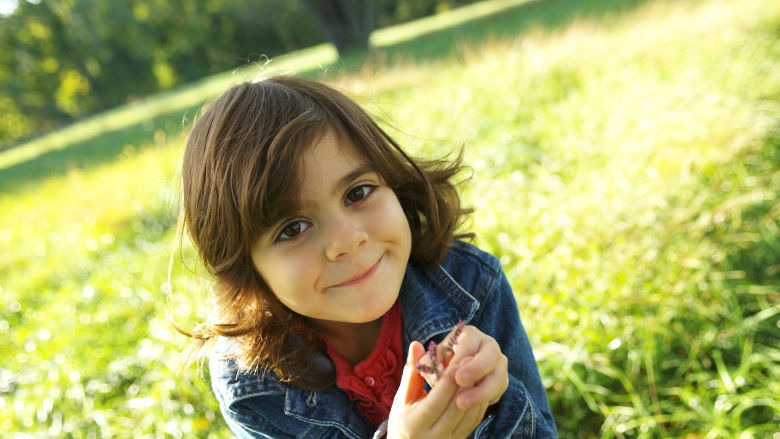CAR T-Cell Therapy for Relapsed Leukemia: Paulina’s Story
Paulina’s situation was dire: Her cancer kept coming back. Her family feared they were out of options. “After the third time her leukemia relapsed,” says her father, Santiago Villanueva, “We thought, ‘What are we going to do now?’”
Paulina’s symptoms began in the fall of 2008, when she was 7 years old. She lost her appetite, she got frequent headaches, and her skin became easily bruised. Then her energy level dropped, her bones and joints ached, and her skin turned a pale yellow tone. It took visits to several doctors in her home country of Mexico before she was diagnosed with acute lymphoblastic leukemia (ALL) in January 2009.
The family contacted a children’s hospital in Houston and immediately took her there, where she received chemotherapy. But in July 2010, she relapsed. The leukemia was now in her spinal fluid. She started a new chemotherapy regimen, this time with radiation as well. Paulina’s entire family — her father; her mother, Pilar; and three sisters — moved to Houston.
For a short time, the cancer seemed to be gone. But in 2012, it returned. Doctors recommended a bone marrow transplant, which she received in early 2013. Fifteen months later, the cancer was back yet again.
Desperate for options
A cousin of Pilar was frantically searching the internet and came upon Emily Whitehead’s story. In April 2012, Emily, who had also had aggressive ALL, was the first pediatric patient treated by the Cancer Immunotherapy Program at Children's Hospital of Philadelphia (CHOP) in an experimental trial of chimeric antigen receptor (CAR) T-cell therapy. The treatment eliminated the cancer cells in her body.
A friend of Paulina’s family in the United States made the initial phone call to CHOP. Soon the family was on a plane to Philadelphia to meet pediatric oncologist Susan Rheingold, MD, and together they decided to enroll Paulina in a clinical trial led by CHOP investigators.
Feeling scared but confident
“I really didn’t understand everything that was happening,” Paulina admits. “But once I was at CHOP, I felt safe.”
Santiago agrees. “We were feeling scared because of the situation we were going through, but the people at CHOP made us feel well and with a lot of hope,” he says. “We also knew of the great prestige CHOP has in the world, and that made us feel even more confident.”
In the summer 2014, the Cancer Immunotherapy team collected Paulina’s T cells, a type of white blood cell. The process takes several hours, and Paulina’s parents and grandmother kept her company as she read and watched movies. The collected cells were then reprogrammed so they would kill her cancerous cells. In November, she received the treatment — a simple injection of the reprogrammed cells back into her body. “After the infusion, we went shopping,” says Pilar. Later in the day, Paulina developed a fever and was admitted to CHOP, but she was discharged after only one day.
Because of the overall success of the trials, in August 2017, the U.S. Food and Drug Administration (FDA) approved the use of this immunotherapy in children. It is now the first-ever cell therapy available as an option for children whose ALL relapses or doesn’t respond to treatment.
Through the course of the cell collection, infusion, and weeks of follow-up monitoring, Paulina’s family was in Philadelphia for several months. And like all the patients who received CAR T-cell therapy, they return to CHOP several times a year for an evaluation. Santiago jokes, “We know Philadelphia better than some Philadelphians.” But the most important thing they know is that Paulina, now 16, remains cancer free to this day.

